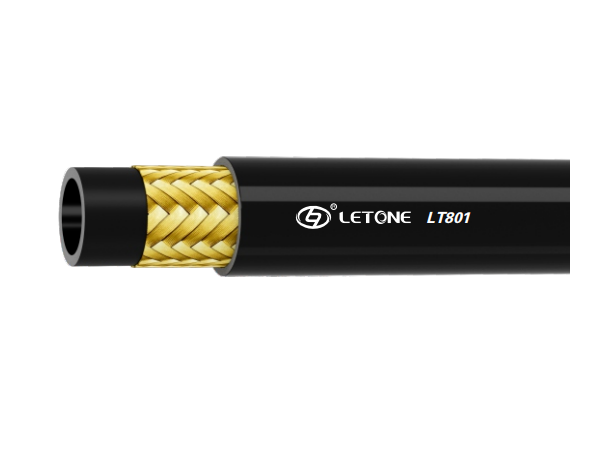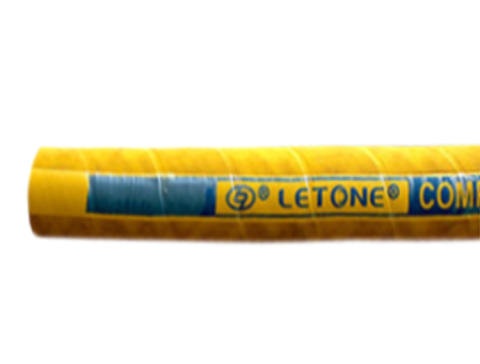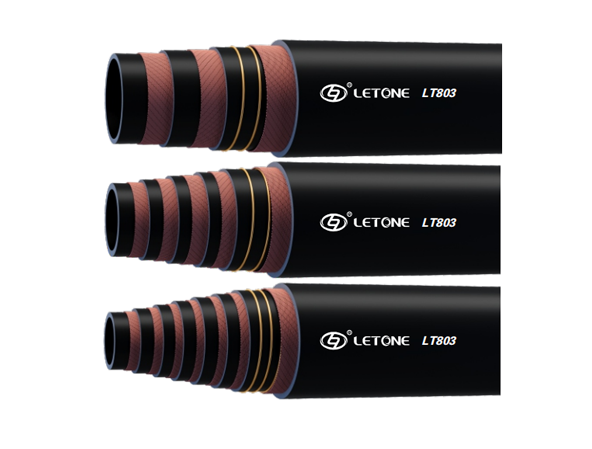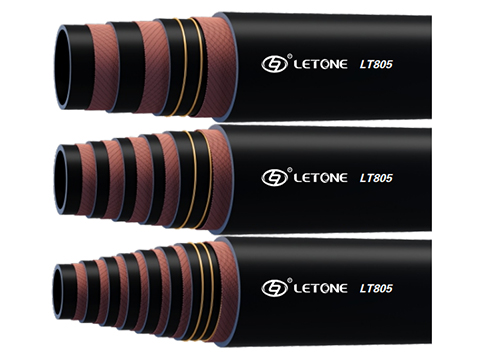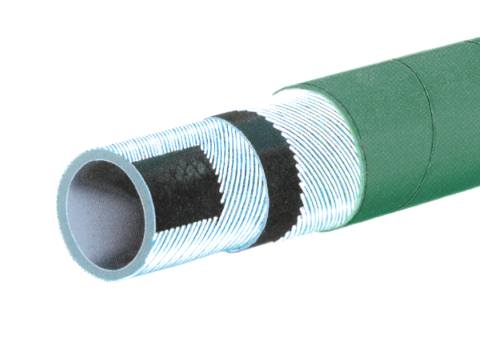
Chemical explosion-proof high-pressure cleaning industry
In the chemical industry, explosion-proof cleaning is a very important task. When the concentration of explosive gases or dust in a chemical enterprise reaches a certain standard, these substances will enter a closed space through air, chimneys or pipelines. Once these gases or dust come into contact with an open flame, they will explode. So how should chemical enterprises take preventive measures when carrying out explosion-proof cleaning work? If you want to completely eliminate such hidden dangers, the first step is to train employees throughout the entire construction process to master this knowledge. Secondly, it is necessary to regularly check each pipeline for any leakage. Finally, explosion-proof cleaning equipment and tools should be used during the construction process to ensure the safety of operators. So what are the explosion-proof cleaning methods for chemical enterprises? At present, there are three main explosion-proof cleaning methods commonly used in chemical enterprises: sandblasting, shot peening, and penetration cleaning. Sandblasting is mainly used for rust removal and scale removal of pipeline equipment; Shot peening treatment is used for areas with thick rust and scale on various pipelines or equipment; Penetrating cleaning is generally used in areas where chemical rust removal methods are not suitable, such as the inner walls, pipelines, valves, and heating furnaces of steel enterprises.

-
1. Operators of explosion-proof cleaning equipment in chemical enterprises must undergo specialized training and possess certain professional knowledge and skills.
If the operator is not trained, it may pose a hidden danger to the safety of the equipment. If the fault is not eliminated in a timely manner, there is a possibility of danger. Chemical enterprise explosion-proof cleaning company - 【 Weifu Petroleum 】 1. Chemical enterprise explosion-proof cleaning equipment: pipeline dredging equipment, sewage suction fittings, sewage pipeline brushes, etc. 2. Chemical cleaning company: high-pressure water for removing stubborn scale and acidic deposits, chemical descaling, etc. 3. High pressure cleaning company: removes dirt on the inner and outer surfaces of pipe fittings, removes metal oxides, and unblocks oil stains and blockages. High pressure water jet cleaning technology is mainly used for the removal of internal and external dirt on mechanical equipment and various containers.
-
2. Cleaning personnel must comply with safety operating procedures, and do a good job of safety protection for hazardous chemical cleaning equipment to prevent accidents from occurring.
The safety operation regulations for cleaning equipment should be clearly defined in the cleaning process regulations and strictly enforced. 3. Method for cleaning hazardous chemicals: Chemical precipitation method: Chemical agents are added to water, dissolved in water, and sediment is precipitated. Chemical mechanical grinding method: The abrasive and water are added to the grinding tool together, and the interaction between the abrasive and the metal substrate is used to remove deposited metal oxides and other impurities. Permeation method: Using water as the medium, utilizing the strong affinity between chemical substances (such as sulfuric acid, nitric acid, hydrochloric acid, etc.) in the solution and the metal matrix to dissolve the sediment in it. Sandblasting method: Compressed air is added to the sandblasting gun to spray high-speed atomized sand to remove rust and scale on pipelines and equipment (sandblasting method is mainly used for metal surfaces and cast iron surfaces). Chemical enterprise explosion-proof cleaning industry: With the development of social economy, our living standards have greatly improved, and the same applies to chemical factories. They are also constantly improving and innovating to meet the new needs of society.
-
3. Explosion proof cleaning personnel in chemical enterprises shall carefully implement various safety measures specified in Technical Regulations for job security of Explosion proof Cleaning in Chemical Enterprises.
4. Smoking and fire are strictly prohibited in explosive cleaning workplaces. 5. Explosion proof cleaning personnel in chemical enterprises must undergo specialized training, master relevant chemical, electrical, and instrument professional knowledge, and pass the exam before taking up the job. 6. Explosion proof cleaning personnel in chemical enterprises must wear safety protective equipment and undergo on-site monitoring. 7. Before repairing equipment, explosion-proof cleaning personnel in chemical enterprises must first understand the maintenance content and requirements, and be familiar with operating procedures. 8. It is strictly prohibited to dismantle or move the explosion-proof cleaning equipment of chemical enterprises at will, and maintenance work must be carried out according to the prescribed procedures and methods. 9. Before maintenance, the parameters of various instruments and meters must be checked and recorded for easy verification and verification at any time. 10. During maintenance, clear signs should be set up at designated locations on the job site, and flammable and explosive chemicals should be isolated or properly stored during construction.
In the chemical industry, explosion-proof cleaning is a very important task. When the concentration of explosive gases or dust in a chemical enterprise reaches a certain standard, these substances will enter a closed space through air, chimneys or pipelines. Once these gases or dust come into contact with an open flame, they will explode. So how should chemical enterprises take preventive measures when carrying out explosion-proof cleaning work? If you want to completely eliminate such hidden dangers, the first step is to train employees throughout the entire construction process to master this knowledge. Secondly, it is necessary to regularly check each pipeline for any leakage. Finally, explosion-proof cleaning equipment and tools should be used during the construction process to ensure the safety of operators. So what are the explosion-proof cleaning methods for chemical enterprises? At present, there are three main explosion-proof cleaning methods commonly used in chemical enterprises: sandblasting, shot peening, and penetration cleaning. Sandblasting is mainly used for rust removal and scale removal of pipeline equipment; Shot peening treatment is used for areas with thick rust and scale on various pipelines or equipment; Penetrating cleaning is generally used in areas where chemical rust removal methods are not suitable, such as the inner walls, pipelines, valves, and heating furnaces of steel enterprises.

-
1. Operators of explosion-proof cleaning equipment in chemical enterprises must undergo specialized training and possess certain professional knowledge and skills.
If the operator is not trained, it may pose a hidden danger to the safety of the equipment. If the fault is not eliminated in a timely manner, there is a possibility of danger. Chemical enterprise explosion-proof cleaning company - 【 Weifu Petroleum 】 1. Chemical enterprise explosion-proof cleaning equipment: pipeline dredging equipment, sewage suction fittings, sewage pipeline brushes, etc. 2. Chemical cleaning company: high-pressure water for removing stubborn scale and acidic deposits, chemical descaling, etc. 3. High pressure cleaning company: removes dirt on the inner and outer surfaces of pipe fittings, removes metal oxides, and unblocks oil stains and blockages. High pressure water jet cleaning technology is mainly used for the removal of internal and external dirt on mechanical equipment and various containers.
-
2. Cleaning personnel must comply with safety operating procedures, and do a good job of safety protection for hazardous chemical cleaning equipment to prevent accidents from occurring.
The safety operation regulations for cleaning equipment should be clearly defined in the cleaning process regulations and strictly enforced. 3. Method for cleaning hazardous chemicals: Chemical precipitation method: Chemical agents are added to water, dissolved in water, and sediment is precipitated. Chemical mechanical grinding method: The abrasive and water are added to the grinding tool together, and the interaction between the abrasive and the metal substrate is used to remove deposited metal oxides and other impurities. Permeation method: Using water as the medium, utilizing the strong affinity between chemical substances (such as sulfuric acid, nitric acid, hydrochloric acid, etc.) in the solution and the metal matrix to dissolve the sediment in it. Sandblasting method: Compressed air is added to the sandblasting gun to spray high-speed atomized sand to remove rust and scale on pipelines and equipment (sandblasting method is mainly used for metal surfaces and cast iron surfaces). Chemical enterprise explosion-proof cleaning industry: With the development of social economy, our living standards have greatly improved, and the same applies to chemical factories. They are also constantly improving and innovating to meet the new needs of society.
-
3. Explosion proof cleaning personnel in chemical enterprises shall carefully implement various safety measures specified in Technical Regulations for job security of Explosion proof Cleaning in Chemical Enterprises.
4. Smoking and fire are strictly prohibited in explosive cleaning workplaces. 5. Explosion proof cleaning personnel in chemical enterprises must undergo specialized training, master relevant chemical, electrical, and instrument professional knowledge, and pass the exam before taking up the job. 6. Explosion proof cleaning personnel in chemical enterprises must wear safety protective equipment and undergo on-site monitoring. 7. Before repairing equipment, explosion-proof cleaning personnel in chemical enterprises must first understand the maintenance content and requirements, and be familiar with operating procedures. 8. It is strictly prohibited to dismantle or move the explosion-proof cleaning equipment of chemical enterprises at will, and maintenance work must be carried out according to the prescribed procedures and methods. 9. Before maintenance, the parameters of various instruments and meters must be checked and recorded for easy verification and verification at any time. 10. During maintenance, clear signs should be set up at designated locations on the job site, and flammable and explosive chemicals should be isolated or properly stored during construction.

